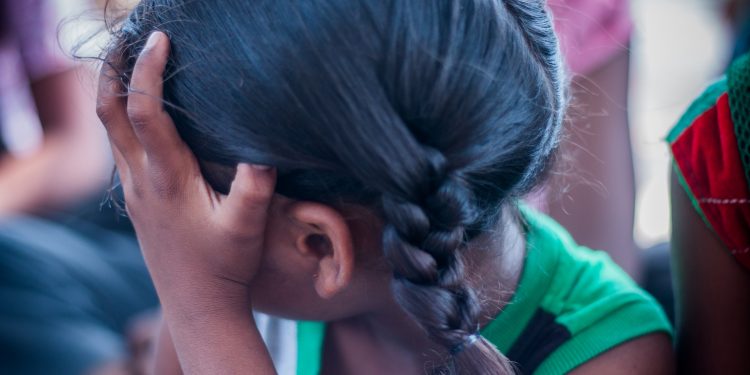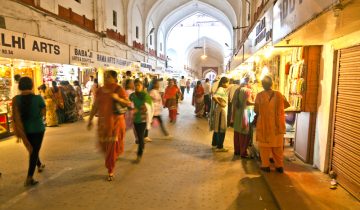Court Denies Autonomy to 10-Year Old Rape Victim: Right to Privacy Vs. Protection of Potential Life

In a horrifying Chandigarh court decision, a 10-year old girl, raped multiple times and impregnated by her maternal uncle, was denied abortion on medical grounds. She was 26-weeks pregnant when the court took the decision. This decision was based on an opinion by a panel of doctors, who examined the girl and suggested that she must carry the foetus to term because the risks of abortion are greater than the delivery. At a time when the country is still in a struggling phase against cruelty against women, the decision of the Chandigarh Court came as a shock.
Puneet Bedi, a Delhi based gynecologist has clearly said, ‘An abortion needs to be done immediately. Yes, there are risks and abortion at this stage is tough. But for the girl who is still developing, scars will be many.’
Mental Health: A Serious Issue
In a generation stigmatized by social ostracism, depression and mental abnormalities, for a young child to bear a life when she herself is going through a confusing phase of life, the state of motherhood can be downright traumatizing. In addition to that, being raped, physically assaulted and mentally abused several times can lead her into taking drastic decisions, falling into depression or even committing suicide. Such experiences are hard for the victim to forget and even harder for others to fathom.
According to Countrywide National Institute of Mental Health and Neurosciences, about 13.7 percent of India’s general population suffers from mental illness. Currently, India spends about 0.06 percent of its health budget on mental health, which is less than Bangladesh (0.44). Most developed nations spend more than 4 percent on mental health.
Mental health is an issue that needs to be handled with sensitivity and with equal importance as a physical ailment. India needs mental intervention given that it has one of the world’s highest suicide rates for youth aged 15-29, caused majorly due to mental abnormalities. With rape as a major violence issue in India, the way the government and law treats the mental health effects of rape is disappointing.
Solutions
It’s necessary to tackle the root of the problem rather than dragging it through a painful process in a delayed court system. A right balance has to be struck been the abortion policies and allowing reproductive rights to women. Restrictive abortion policies should be amended to bring more sensitivity to abortion cases, especially in rape cases. However, abortions must not, at any cost be legalized completely. The law needs to keep a check on a rise in careless pregnancies and abortions. Afterall, aborting a viable foetus is similar to killing a life. A woman definitely has the Right to Autonomy. However, when a potential life is concerned, the law must interfere and protect the life unless there is grave danger to the mother or the child. From a recent BMC data collated from registered MTP centers, 34,790 women underwent medical or surgical abortion in year 2015-16.
Cases in which a woman is raped and impregnated must be handled with care. Exceptions must be granted in such cases. No woman who is raped and impregnated must be forcefully asked to carry a trauma-caused pregnancy to term. Carrying a rapist’s child can have severe health consequences for a woman who has previously been exploited and her dignity shattered. It can leave permanent imprints from which she can never recover. This alone provides the court reason enough to bring into effect the Medical Termination of Pregnancy Act and not to deny her right to abortion taking in regard the severe condition of her mental well being. It is necessary to get the foetus aborted before it becomes viable in order to avoid a dilemma of the child’s safety. Such cases must be the priority of the court because a delay can open a new can of worms as time passes.
In order to tackle the problem of child abuse, parents must close the emotional gap between them and the children. Our society is very conservative on issues of sexual nature, be it in schools or at home. This is one of the reasons why children often go through sexual abuse for a very long time. Opening up about sexual issues and treating them less as a taboo and more as an important part of education must be the priority of the society.
Moving Forward
We have to think about where our interests lie. In violence infested society like ours and very less hope for timely justice, even going to work is a challenge for a woman. One incident can change a woman and turn her from a person with dignity into a lifelong victim of exploitation and social stigma. Rape and pregnancy for a 10-year old child is then a situation which is downright chilling.
Times change. There is no one law that can be applied in all times to all people. Our society is forever going through transition, for the best or for the worse and in such times of abounding growth or peril, the law must also be flexible and either be the salvation of every individual or the damnation of the whole society.
[Image Attribute: varunkul01]



